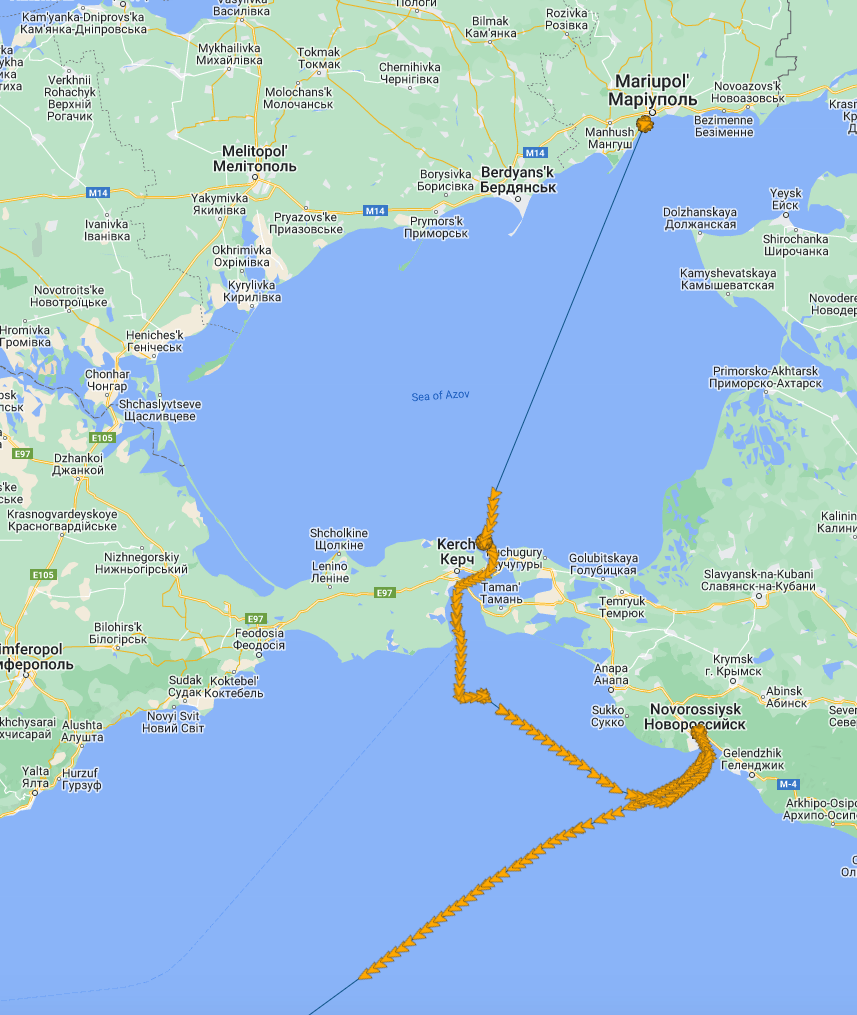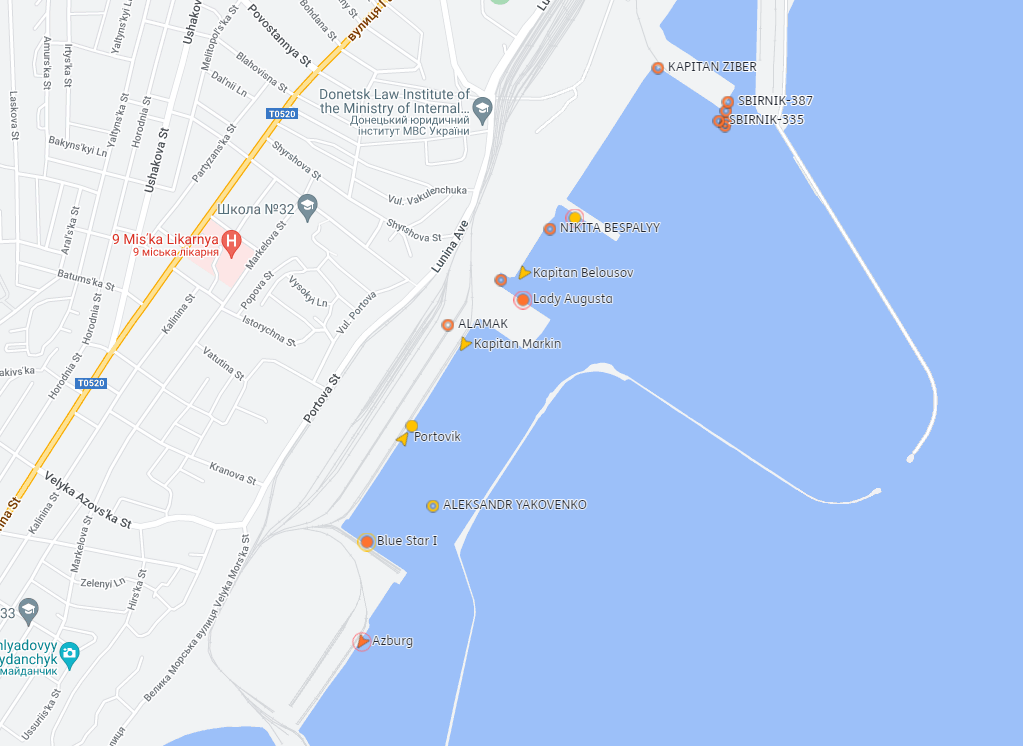Cargoship allowed to leave Mariupol after four months
Sea mines remain a danger in Odessa region of Black Sea, reports local Lloyd’s agency
Ship alongside at occupied port since Russian invasion of Ukraine allowed to sail for Novorossiysk, but other vessels remain trapped
A GENERAL cargoship trapped alongside at Mariupol since February has been allowed to leave the occupied Ukraine port, according to a report from the Lloyd’s agency that covers the country.
The departure of 2008-built Azov Concord (IMO: 9387748) comes as the governments of the world’s leading economies meet in Bavaria, with the agenda at the Group of Seven summit including discussions of how best the West can respond to the situation.
There has also been widespread condemnation of a Russian missile attack on a shopping centre in the town of Kremenchuk, in which at least 18 people were reported to have been killed and a further 36 are missing.
The Malta-flagged general cargoship, 8,975 dwt Azov Concord is registered to an address in the Marshall Islands. Its departure followed negotiations between Turkey and Russia, which may ultimately lead to the creation of a safe corridor for the export of Ukrainian grain with entailing the demining of the Black Sea, because the position of extant mines is already known, Odessa-based Eurogal added.
Azov Concord arrived in Mariupol on February 21. Its automatic identification system was turned off on June 9, according to Lloyd’s List Intelligence vessel tracking data. It reappeared just north of the Kerch Strait on June 24, the day before its arrival at Novorossiysk. It set sail on June 26 and is due to arrive at Zonguldak, Turkey.
Eurogal says the five foreign-flagged vessels still blocked at Mariupol are Blue Star 1 (IMO: 9375159), Azburg (IMO: 9102899), Lady Augusta (IMO: 9163568), Tzarevna (IMO: 9145231) and Smart.
The image below shows vessels berthed at Mariupol. Many of the ships have turned off their AIS signals.
Vessel calls at Ukrainian ports located in the Odessa Bay region of the Black Sea remain precluded on account of the fighting, and efforts are being made to move exports by rail and truck.
Further sea mines have been discovered in local waters, with one of them exploding while close to the coast, causing a wave that damaged waterfront buildings. Another mine was neutralised with a controlled detonation.
Ports in Syria and Turkey are receiving cargoes of stolen Ukrainian grain via fleet of at least 10 Russia- and Syria-flagged handysize bulk carriers and cargo vessels, Lloyd’s List reported last week.
Many of the vessels have engaged in deceptive shipping practices, switching off their transponders for part of voyages, a practice known as “going dark”. This helps obfuscate cargo origin and destination.
The Ukrainian government has estimated that at least 400,000 tonnes of grain has been looted by the invaders.
But Ukraine’s Danube ports remain operational, and are working flat out to maintain grain shipments, which are a crucial element in the diet of many developing countries.
These include the small river ports of Reni, Izmail and Kiliya, which have significantly increased activity to take up the slack in exports created by the hostilities.
Fears are growing that many countries will face widespread food shortages unless grain exports can be resumed on a meaningful scale.
Eurogal also reports that Ukraine’s agricultural sector has sustained losses of $4.3bn on account of the conflict so far.
This figure includes more than $2bn for damage to farms and the non-gathering of harvest, over $900m for damage to farming equipment, and some $270m for damage to or destruction of warehousing.



